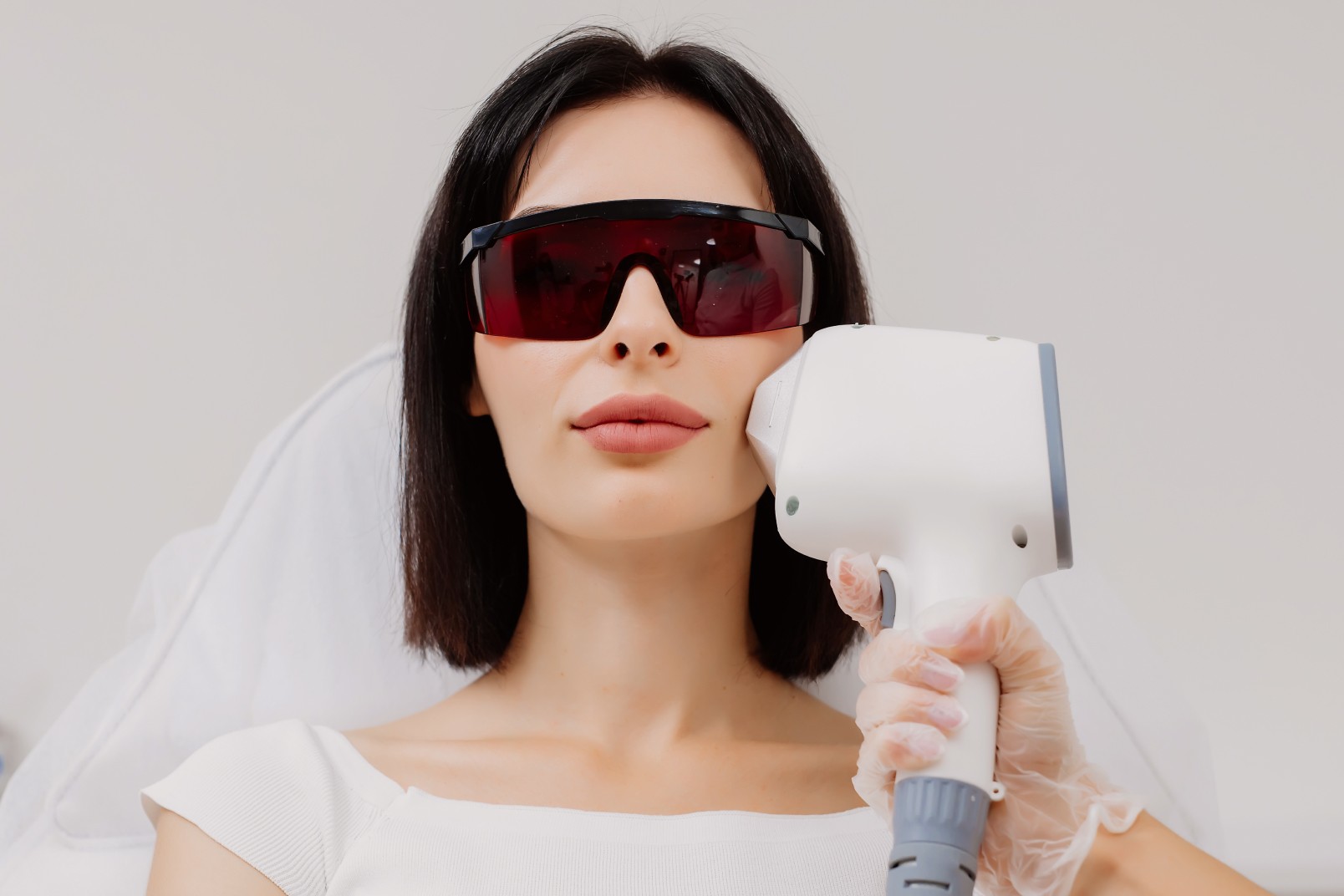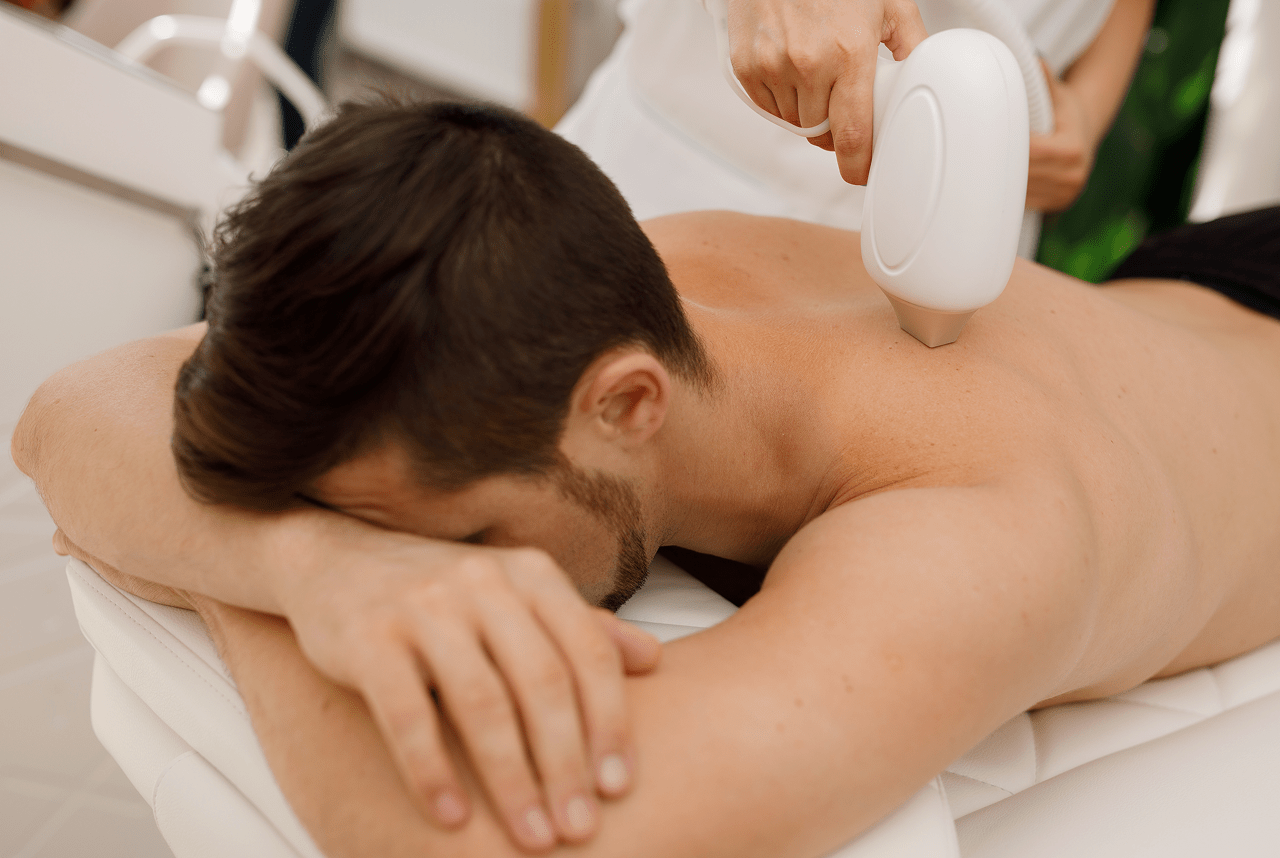While a full beard may often be admired, chin hair on women is something that few desire. Yet, this issue is more common than you might think. From hormonal changes to certain medical conditions, there are many reasons why unwanted chin hair can appear in women. In this article, we will not only explore the causes but also discuss possible solutions.
Obsah
One of the most effective methods for dealing with unwanted hair is laser hair removal. If you’re looking for a more permanent solution than shaving or waxing, we’d be happy to welcome you for your first session at our salon. Plus, we’re offering a discount for new customers—just complete our quick quiz!
Hirsutism, medications, hormones… What causes chin hair?
Hirsutism
Hirsutism refers to the excessive growth of dark or coarse hair on various parts of the body in women, including the chin. This condition is caused by an overproduction of male sex hormones, androgens, or increased sensitivity of hair follicles to these hormones. Accurate diagnosis and treatment according to a doctor’s instructions usually help manage hirsutism effectively.
PCOS (Polycystic Ovary Syndrome)
Chin hair and hormonal fluctuations during puberty or menopause
Use of certain medications
Some medications have side effects that include excessive hair growth. Medications known to have these side effects include steroids, certain types of blood pressure medications, some anticonvulsants, and medications used in hormone therapy.
If you find that a certain medication is causing unwanted hair growth, it’s important to consult with your doctor about possible alternatives or dosage adjustments.
If you’re troubled by chin hair growth, it’s important to consult with your doctor to identify the exact cause of the problem. The good news is that there are various ways to address chin hair growth, from medications and lifestyle changes to cosmetic procedures such as laser hair removal. Let’s explore these solutions.
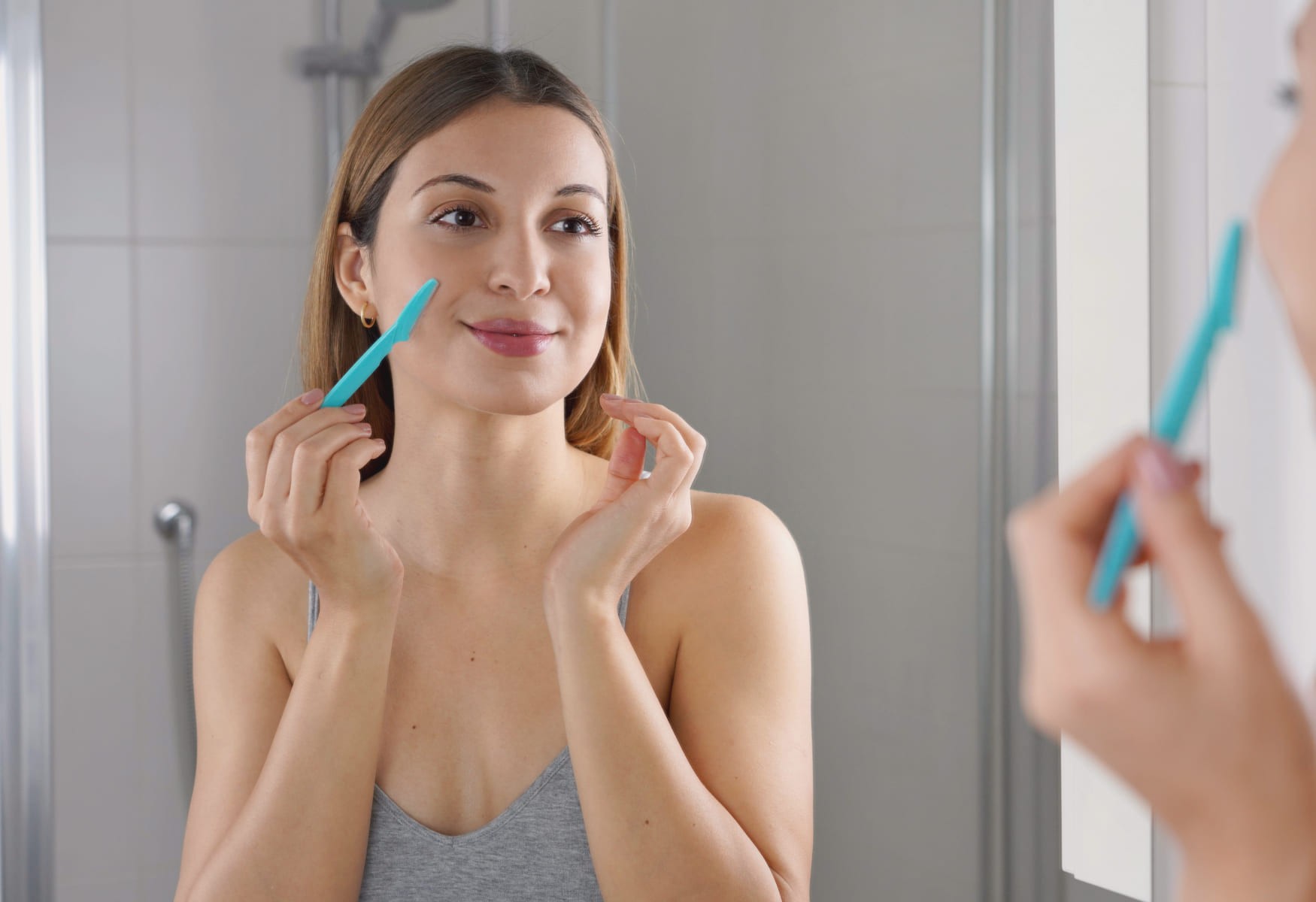
How to get rid of chin hair in women
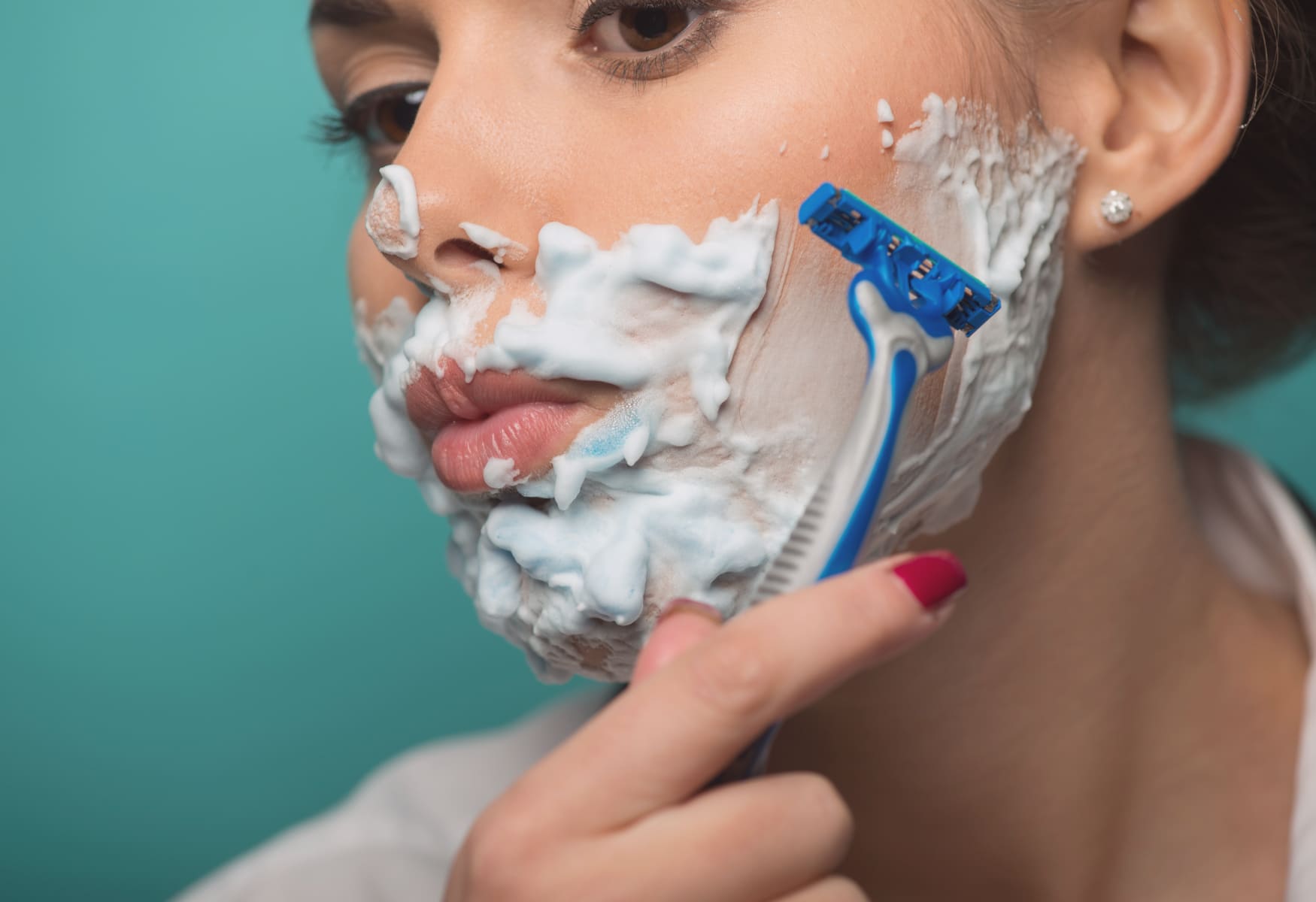
How to stop beard growth in women? Consult a doctor first
What to do if a woman grows a beard? Lifestyle changes can help
Changes in lifestyle, diet and increased physical activity (especially strength training) also help to restore hormonal balance, especially if it is associated with excess weight.
Abstinence from alcohol and smoking, as well as good quality sleep on a daily basis, can also help to restore hormonal balance. In terms of diet, limit sugars and, conversely, increase protein and fibre intake. A Mediterranean diet is ideal in this respect.
Stress also contributes to hormonal imbalance, so it is not a bad idea to incorporate anti-stress techniques into your daily routine. Examples include yoga, meditation and various anti-stress exercises.
You can remove unwanted hair through regular shaving and depilation
While these methods don’t address the underlying causes, they are effective for removing existing hair temporarily. Options include shaving, waxing, or using depilatory creams. However, be aware that hair will start to grow back over time. These methods are suitable if you need an immediate solution but do not offer the long-term results provided by laser facial hair removal.
Permanent laser hair removal - how to remove a beard in women
Laser hair removal is the ideal solution for long-term hair growth on the chin. This method destroys the hair follicles with laser light, thus preventing their further regrowth.
However, also consider that to reap maximum results from moustache epilation or upper lip or chin hair removal, you need to undergo several repeated sessions.
While such an investment may be higher, laser hair removal is still a more economical option in the long run compared to constant shaving and waxing, not to mention the time savings it brings you.
Epilation does not naturally solve the problem of hormonal imbalance on its own, so think of it as complementary to hormone therapy or other treatments recommended by your doctor.
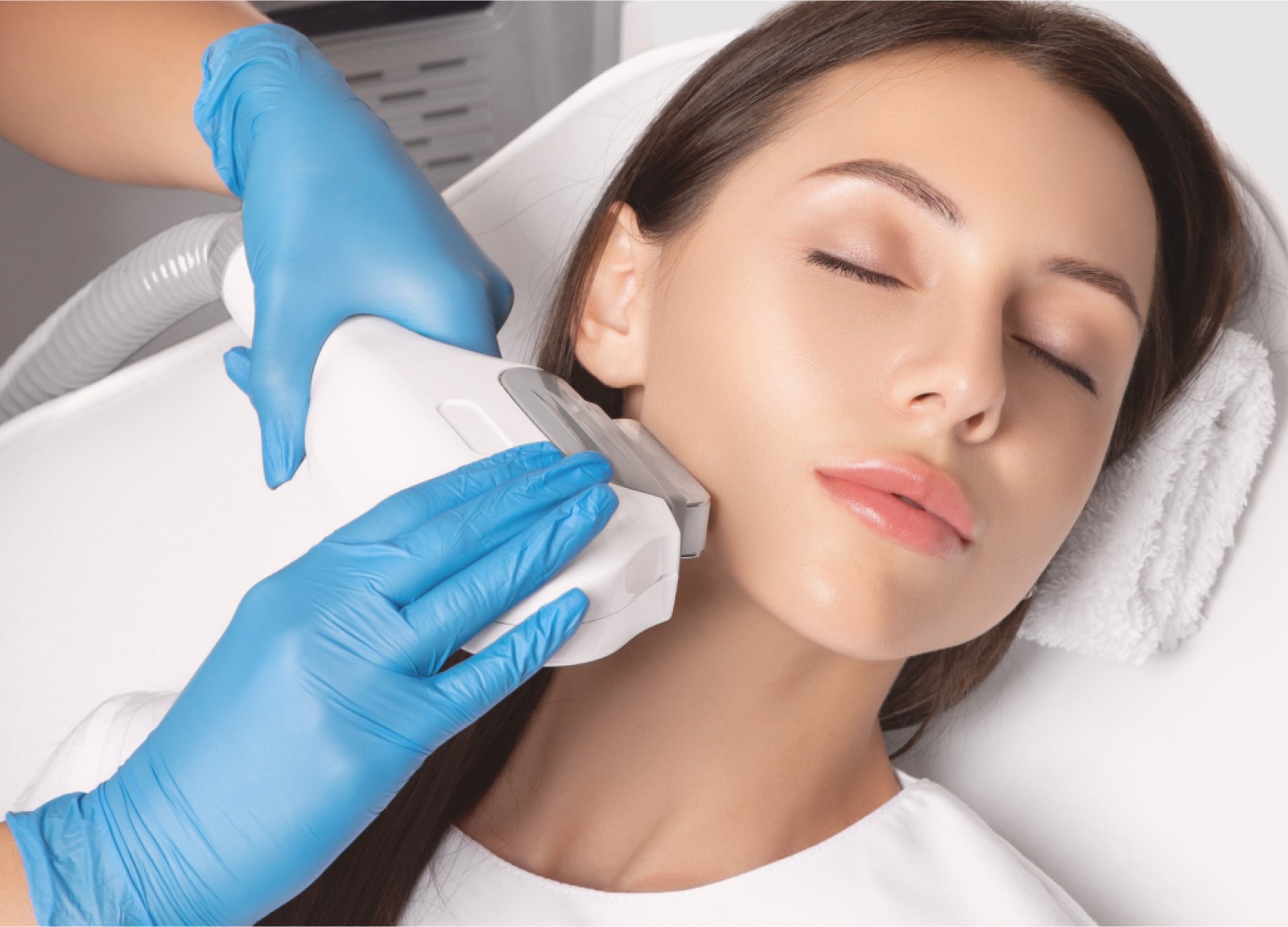
Conclusion
Hair growth in women on the chin has a number of causes, some of which are related to natural development and during life, while others may indicate more serious hormonal problems.
Unwanted hair probably does not please any woman and, in addition to the health and aesthetic aspects, it often represents a blow to self-esteem and psychological well-being.
It is therefore essential, if you are troubled by this problem, to seek professional medical advice to help nip the problem in the bud.

